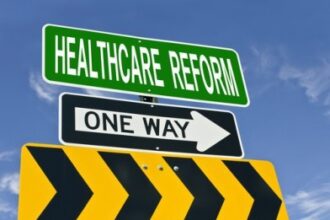Grim Reaper
Ceramic ghosts are grinning at the grocery store. Pumpkins are piled in the parking lot. Costumes are waiting to transform small children into princesses, bumblebees and superheroes. The first leaves are drifting down in a warm breeze. Artificial Christmas trees twinkle at Costco. Must be autumn, though it’s over 80o here in the Rockies.
Grim Reaper
Ceramic ghosts are grinning at the grocery store. Pumpkins are piled in the parking lot. Costumes are waiting to transform small children into princesses, bumblebees and superheroes. The first leaves are drifting down in a warm breeze. Artificial Christmas trees twinkle at Costco. Must be autumn, though it’s over 80o here in the Rockies.
Death shadowed our summer. Death has stalked us into fall. Not with scary costumes. Ebola protection gear. Not with cheerful goblins. Beheadings, another last week. Not heaps of pumpkins. Rubble of bombed Syrian buildings. Relief is nowhere in sight. Then the Institute of Medicine (IOM) adds Dying in America (DIA) to the relentless dirge.
DIY Death
Dying in America: Improving Quality and Honoring Individual Preferences Near the End of Life to be precise. The hardcover appears later this year. A long one at 500-plus pages. The uncorrected proof is available now as a free PDF download at http://www.nap.edu/catalog.php?record_id=18748.
The report is the work of an IOM group called The Committee on Approaching Death: Addressing Key End-Of-Life Issues. Composed of doctors, nurses, insurance execs, think tank habitués and policy gurus. Co-chaired by a physician and an accountant. Philip Pizzo, MD is a trained pediatric oncologist. He was Dean of the Stanford University School of Medicine from 2001 to 2012. David Walker is a certified public accountant who was United States Comptroller General from 1998 to 2008. He now vigorously campaigns to cut the federal deficit and rein in Medicare and Medicaid spending.
The DIA foreword helpfully reminds the reader that “…every person will face the end of life one day…” The foreward tells us the whole project was underwritten by “A public-spirited donor, wishing to remain anonymous, [who] came forward to support this study.” More about that disturbing revelation later.
The preface smacks us between the eyes again. “[D]eath will inevitably occur.” OK. We. Know. It blathers innocuous boilerplate about life cycles, journeys and aligned families. (Only bureaucrats could call birth “the inception of living”.) It resurrects those ACA specters—death panels—to rebury them. Then, one paragraph down, shreds all its gauzy reassurance by bringing up health care costs as a key problem.
The body of the report examines delivery of care for frail and dying Americans. Hyphenated. Person-centered, family-oriented, clinician-patient, life-cycled, high-quality end-of-life care.
Each chapter deals with a different bureaucratic facet of dying; patients and families, patients and clinicians, professional education, payment systems and public engagement. The chapters end with sections entitled “Research Needs” and “Findings, Conclusions and Recommendations”.
(Were we clamoring for this report?)
A Good Death
Two themes thread through the work. First, most Americans prefer to die at home. That is received wisdom for our time. Convenient wisdom for bean counters. Perhaps it’s true. This posting will take it as a given.
Second, families are crucial to the IOM’s scheme. The wobbly edifice built by the DIA committee only stands if families supply the free labor foundation necessary to build their project.
 DIA tells us 69% of family caregivers receive no help from home health services. Seventy-three percent of folks are trying to hang onto jobs while caring for dying or elderly relatives. And 55% of caregivers struggle longer than three years carrying these burdens.
DIA tells us 69% of family caregivers receive no help from home health services. Seventy-three percent of folks are trying to hang onto jobs while caring for dying or elderly relatives. And 55% of caregivers struggle longer than three years carrying these burdens.
Yet the committee disingenuously says in the chapter “Findings” that, “Information about the number and responsibilities of caregivers specifically for those nearing the end of life is not available.” Must be the “Uncorrected Proofs” part watermarked on every page.
The chapter on cost says: “Older Americans’ reliance on family members—whose care was valued at $450 billion in 2009—to serve as caregivers may be difficult to sustain…loss of family caregiving capacity would increase demand for services paid for by both Medicare and Medicaid.”
Presumably the $450 billion includes only the direct costs if paid caregivers replaced unpaid families. It likely doesn’t include the opportunity costs to caregivers who must leave the workforce or work part-time. Lost wages. Lost retirement funding. Lost promotions. Lost health insurance. And out-of-pocket expenses for the patient borne by family members who are cash-strapped themselves.
Funny what Comptrollers General can overlook when it suits them. Especially when hellbent on reducing Medicare and Medicaid spending.
Hobgoblins
Many families lost housing, job, and retirement security in the Great Recession. Their wages haven’t risen in real terms in a generation. Their hold on financial well-being may be tenuous. If they still have any hold at all. Now IOM’s Committee on Approaching Death apparatchiks advocate building their whole death structure on the over-burdened backs of ordinary Americans.
The Committee and its co-chairs never miss a chance to remind us of death’s inevitability. They are distinctly squeamish, however, talking about the financial realities of dying in America. Without help. The Committee issues no robust call to fix this problem. Except with more advanced directives and electronic health records. Sounds like death panels.
And what of that anonymous source masquerading as a public-spirited donor? The person(s) who underwrote influential work that may have outsized effects on American families? Why anonymous? Conflicts of interest perhaps? The Committee talks endlessly about death, but hasn’t the moral courage to insist the donor removes the mask?
Dying in America is not a treat. It looks a lot like a trick.







